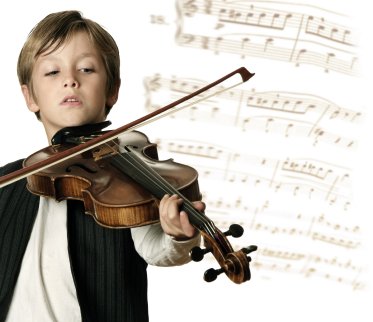When support becomes pressure: How to help your child achieve without stress

When support becomes pressure: How to help your child achieve without stress
As a parent, you want your child to do the best he or she can in life. Whether it’s about academic, sporting or cultural interests, it’s normal for parents to have aspirations for their children. But when does support become pressure? And how does pressure affect a child?
The difference between support and pressure
The line between support and pressure can be blurry, as it varies from child to child. Some pressure may be beneficial, encouraging a child to stay focused and organised. But negative pressure can arise when a child is expected to perform in an area they don’t enjoy or show an aptitude for. Pushing a child in a direction that isn’t a natural fit may hinder achievement in other areas that they are passionate about.
Typically, pressure becomes a problem when it is unrelenting, and when it is based around pushing towards achievement. Over-involvement in your child’s day-to-day life and being unwilling to let them make their own decisions are two other factors that contribute to pressure. Your child may also get the impression you only love them for what they can do and how much they can achieve.
The negative outcomes of too much pressure
A longitudinal study tracked 5000 people since their birth in 1946. Researchers found that people with parents who intruded on their privacy or encouraged dependence had lower happiness and general well-being scores throughout their lives[1].
More immediately, depression in adolescence is growing and becoming a major concern, with rates increasing from 8.7% in 2005, to 11.3% in 2014[2]. Even financially stable families with many options for schooling and hobbies are reporting worrying behaviours. A recent study from Arizona State University found that ‘relentless pressure’ from parents meant that children were twice as likely to suffer from depression and anxiety. Sleep problems, a disconnection from parents, anxiety, self-destructive behaviour and behavioural problems can also arise from pressure.
When pushed, children may lose confidence in their abilities. Low academic self-esteem can then go on to make them resistant to learning[3]. Fear of failure may paralyse them, because they’re unable to learn or succeed where they otherwise may have[4].
If a child’s identity has become strongly linked to a sport or activity and they go on to fail, their identity may suffer as a result.
How to provide the right kind of support
Dr Paul Stricker from the American Academy of Pediatrics says that “Adolescents who are struggling for identity among their siblings or classmates may find a unique area of improvement and accomplishment in an activity, such as a certain sport, musical instrument, or artistic performance, which causes their self-confidence to blossom[5]”. So, you must encourage your child in areas they enjoy and watch them thrive.
Child psychologist Dr. Madeline Levine writes that parents can “be over-involved in the wrong things, and under-involved in the right things.”[6]. This leads to the parent-child relationship suffering. She explains that if parents are pushing their children to achieve, often the child is missing out on a connection on their own terms. Spending time together is important, and the focus should be on having fun without discussing school grades or performance of their sport or hobby. This ensures the child understands that their parents love them for who they are, not for what they can do. Levine also recommends giving your child space to try things, enjoying the activity without having to excel.
Spend time with your child, have fun with them, and support them in their interests. Love them for who they are and measure their happiness and security, not their grades.
[1] http://www.independent.co.uk/life-style/health-and-families/overly-controlling-parents-cause-their-children-lifelong-psychological-damage-says-study-10485172.html
[2] https://www.livescience.com/56899-depression-increasing-teens-united-states.html
[3] https://www.theguardian.com/lifeandstyle/2014/oct/04/we-need-stop-pushing-our-kids-parents
[4] https://www.modernmom.com/the-effects-of-academic-parental-pressure-on-kids-120265.html
[5] http://nationalpost.com/life/parental-pressure-may-cause-more-harm-than-good/wcm/74748b9a-bda0-4b18-92ab-af98f9088df6
[6] http://www.huffingtonpost.com/juliette-fay/parental-pressure_b_2258144.html



